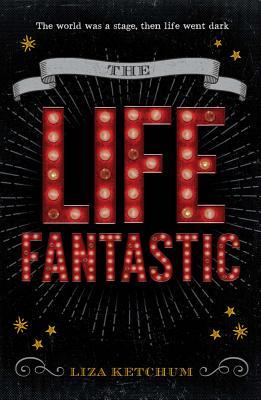July 18th 2017 by Andrews McMeel Publishing
Copy provided by the publisher
When I put this author's Skip School, Fly to Space in my library, it was checked out by one of my library helpers who thought it looked funny. He took it to class with him, but got caught reading it, and his teacher took it away from him! While she did so with good humor all around, this had the unintended effect of making every child in the class want the book. It came and went daily for about a month! When I told the first student that, in fact, the newspaper had a brand new cartoon by this author every day, he started heading right for the newspaper when he came in to work in the library.
Isn't that why YOU read the newspaper when you were 12? Of course, I was taught that the comics are the "dessert" and one should read the newspaper in order so as to become an informed member of society. I still feel a little naughty if I read the comics first on Sunday.
Pastis writes the middle grade Timmy Failure series, and children like that. I don't find comic strip collections all that enthralling, since I get my daily dose of them from the newspaper. My recent experiences with Andrews McMeel publications lead me to believe that school libraries need to include more of these AMP! Comics for Kids books because children today are being deprived of a basic reading opportunity. Sure, I suppose you can get the comic strips on line, but it's just not the same!
As for the content of this particular strip, I always find them funny. Who doesn't have a character like Rat or Pig in their world? It's nice that the AMP! line takes a few of the more political or edgy strips out when putting together their compilations, so these would even be great for emerging readers in elementary school. I'm pretty sure that Nancy and Sluggo helped me learn to read!

Ketchum, Liza. The Life Fantastic
January 1st 2017 by Merit Press
Public Library Copy
In 1913, Resa LeClair had a brief moment of fame singing on a Vaudeville stage when she was young, but after her parents retired to a small town in Vermont, she thought that her singing career is over. Because she has perfect pitch, her father wants her to go to work in the tuning room of the Estey Organ Company, leaving school so that she can earn some money and reduce the family's reliance on borders. This sounds like prison to Resa, and when she wins a local talent contest and makes some contacts with people in show business, she knows she has to leave her town. With the help of a young African-American song and dance man, Pietro, she and her brother Pascal (who wants to jungle) earn a spot in a company and travel with them. Maeve, who has a marching dog act, helps ready Resa for the stage and includes Pascal in her schtick with the dogs. Pietro and Resa become good friends, but when the act leaves New England, people are less understanding about a white girl talking to a "colored boy". Resa's father attempts to bring the children home, but Resa knows that her life doesn't lie in a small town, and she continues to work on the Vaudeville circuit.
Strengths: Perhaps because I was in the pit orchestra for my high school's production of Gypsy, I've always found Vaudeville fascinating. There is only one other middle grade book about it that I can think of, Tubb's Selling Hope, on this topic. Working racial issues into the story adds even more dimension and interest. This is based on events in the author's grandparents' lives, making this a great historical novel. I even love the cover. Having recently visited the American Sign Museum, I can say that the type of bulbs used are historically accurate!
Weaknesses: A bit slow and long for middle school.
What I really think: I don't think I'll buy a copy for middle school, but I enjoyed this book tremendously and think it would be a great addition to a high school library.



























No comments:
Post a Comment